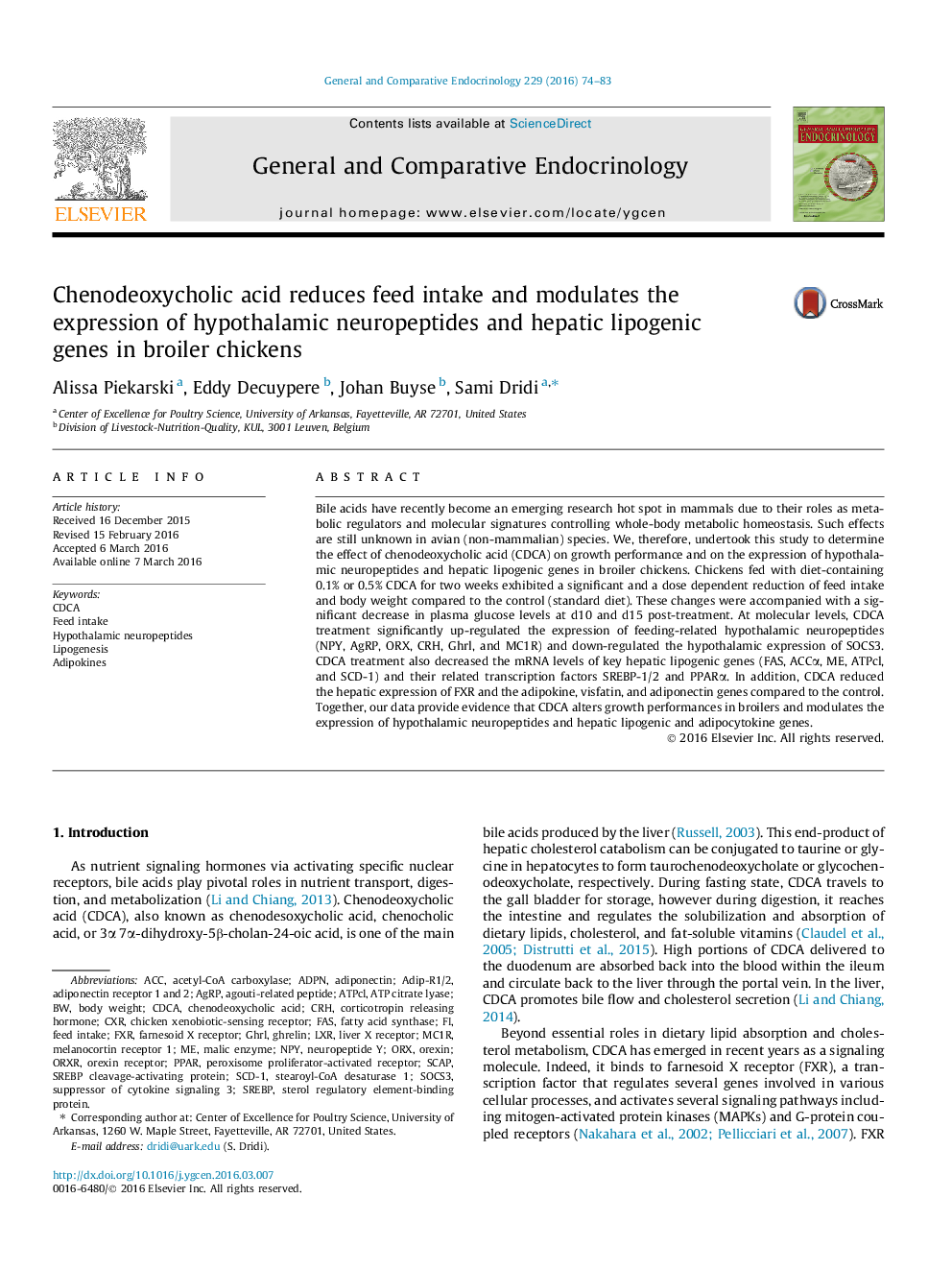| Article ID | Journal | Published Year | Pages | File Type |
|---|---|---|---|---|
| 2799842 | General and Comparative Endocrinology | 2016 | 10 Pages |
•Diet-containing CDCA inhibits feed intake and reduces body weight in broiler chickens.•CDCA treatment modulates the expression of hypothalamic neuropeptides.•CDCA alters the expression of hepatic lipogenic genes.•CDCA modulates the expression of the hepatic adipokine; leptin, visfatin and adiponectin genes.
Bile acids have recently become an emerging research hot spot in mammals due to their roles as metabolic regulators and molecular signatures controlling whole-body metabolic homeostasis. Such effects are still unknown in avian (non-mammalian) species. We, therefore, undertook this study to determine the effect of chenodeoxycholic acid (CDCA) on growth performance and on the expression of hypothalamic neuropeptides and hepatic lipogenic genes in broiler chickens. Chickens fed with diet-containing 0.1% or 0.5% CDCA for two weeks exhibited a significant and a dose dependent reduction of feed intake and body weight compared to the control (standard diet). These changes were accompanied with a significant decrease in plasma glucose levels at d10 and d15 post-treatment. At molecular levels, CDCA treatment significantly up-regulated the expression of feeding-related hypothalamic neuropeptides (NPY, AgRP, ORX, CRH, Ghrl, and MC1R) and down-regulated the hypothalamic expression of SOCS3. CDCA treatment also decreased the mRNA levels of key hepatic lipogenic genes (FAS, ACCα, ME, ATPcl, and SCD-1) and their related transcription factors SREBP-1/2 and PPARα. In addition, CDCA reduced the hepatic expression of FXR and the adipokine, visfatin, and adiponectin genes compared to the control. Together, our data provide evidence that CDCA alters growth performances in broilers and modulates the expression of hypothalamic neuropeptides and hepatic lipogenic and adipocytokine genes.
